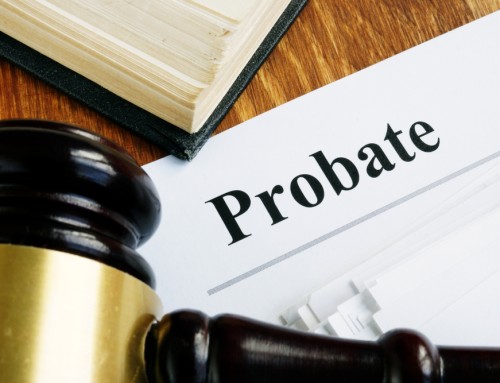What Happens to Your Assets If You Don’t Have a Will?
Many people assume that their assets will automatically pass to their loved ones, but without a legally valid will, the state decides who inherits your estate. In Arizona, this means following intestate succession laws, which may not align with your wishes.
If you pass away intestate (without a will), Arizona law dictates that your estate is distributed among your closest relatives in a specific order. For example:
- If you are married and have no children, your spouse typically inherits everything.
- If you have children from a previous relationship, your assets may be split between your spouse and children.
- If you are unmarried with no children, your estate may pass to your parents, siblings, or even more distant relatives.
- If no legal heirs exist, your estate may be claimed by the state.
To ensure your assets go to the right people, it’s crucial to create a Last Will and Testament. But not all wills are valid—Arizona law requires specific formalities.
How to Create a Valid Will in Arizona
There are two types of legally valid wills in Arizona:
1️⃣ A typed will – This must be signed, notarized, and witnessed by two people who are not your relatives. 2️⃣ A handwritten will – Also called a holographic will, this must be entirely in your handwriting and clearly state who inherits what.
Each legally valid wills has its benefits, but failing to meet these legal requirements can leave your will open to contests in probate court. If a court deems your will invalid, your estate could be distributed based on Arizona’s intestate laws rather than your wishes.
Additionally, updating your will regularly is just as important as creating one. Life events such as marriage, divorce, having children, or acquiring significant assets may require changes to your estate plan. Without updates, outdated wills may lead to unintended consequences or family disputes.
Does Every Will Go Through Probate?
Not necessarily! Arizona has a simplified process for smaller estates. If your assets are below:
- $75,000 in personal property
- $100,000 in real estate
Then your family can avoid probate by filing a simple affidavit. However, estates exceeding these limits require probate—a court-supervised process where a personal representative collects assets, pays debts, and distributes the estate.
Probate can be time-consuming and expensive, sometimes taking months or even years to complete, depending on the complexity of the estate and whether disputes arise. That’s why many individuals turn to trusts as an alternative to wills.
The Difference Between Revocable and Irrevocable Trusts
A trust is an alternative to a will that can help avoid probate and provide more control over how assets are distributed. The two main types of trusts are:
✅ Revocable Trusts – Can be changed or updated at any time. Ideal for those who want flexibility. ✅ Irrevocable Trusts – Once created, changes are difficult or impossible. Often used for tax and asset protection benefits.
Most people choose revocable trusts because they allow updates when life circumstances change. However, irrevocable trusts are valuable for high-net-worth individuals looking to reduce estate tax liability and protect assets from lawsuits or creditors.
A major advantage of a trust is its ability to specify how and when assets are distributed. For example, if you want to ensure your children receive their inheritance at a certain age rather than all at once, a trust allows you to do so. This level of control can help prevent financial mismanagement or reckless spending by heirs.
Why Trustees Matter in Estate Planning
A trustee is the person (or institution) responsible for managing trust assets and following the trust’s terms. In Arizona, a company cannot serve as a trustee unless licensed as a trust company, but individuals can act as trustees—even family members.
While many parents choose a child as a trustee, this can create conflicts and liability issues. If the trustee mismanages assets (such as investing in high-risk stocks), they can be personally sued by beneficiaries.
To avoid legal disputes, many families opt for corporate trustees, like trust banks, that specialize in professional asset management. A corporate trustee ensures impartiality, professional investment strategies, and adherence to legal responsibilities.
Additional Estate Planning Tools
Beyond wills and trusts, Arizona residents may benefit from additional estate planning tools to ensure their wishes are honored:
- Durable Power of Attorney – Allows someone you trust to handle financial and legal matters if you become incapacitated.
- Healthcare Power of Attorney – Appoints a trusted individual to make medical decisions on your behalf if you’re unable to do so.
- Living Will – Outlines your medical preferences regarding life support and end-of-life care.
- Beneficiary Designations – Certain assets, such as retirement accounts and life insurance policies, pass directly to named beneficiaries, bypassing probate.
Proper estate planning isn’t just about avoiding probate—it’s about ensuring your legacy is managed according to your values and protecting your loved ones from unnecessary stress.
Common Estate Planning Mistakes to Avoid
Many people make mistakes when creating their estate plans. Here are some common errors to watch out for:
Failing to update your will or trust – Life changes, and your estate plan should too. Failing to update beneficiaries or assets can lead to disputes and unintended distributions. Not planning for incapacity – Without a power of attorney or healthcare directive, your loved ones may have to go through costly court proceedings to make decisions on your behalf. Ignoring tax implications – High-net-worth individuals may face estate tax liabilities that could be mitigated through strategic planning. Assuming a will alone is enough – Wills are important, but they don’t cover everything. Trusts, beneficiary designations, and powers of attorney provide a more comprehensive approach.
Secure Your Future with an Estate Plan
Estate planning is one of the most important steps you can take to protect your family’s future. Whether you need a simple will or a complex trust, making informed decisions now will save your loved ones time, money, and stress later.






